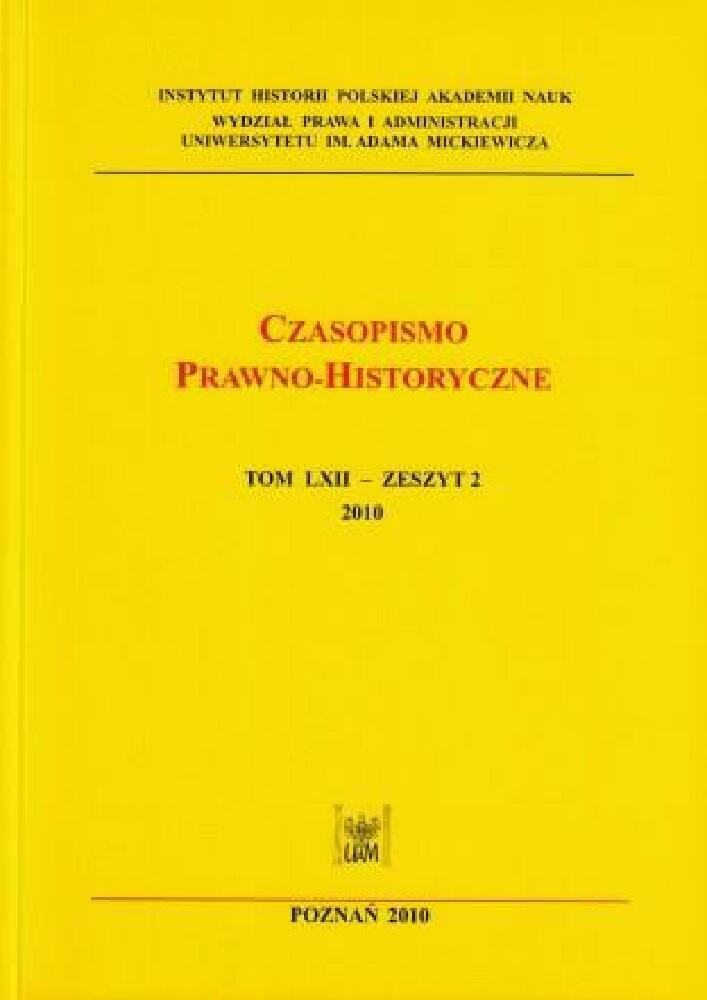Abstrakt
The reform of the nobility in the Kingdom of Poland carried out between 1836 and 1861 by the Russian Empire controlling its part of Partitioned Poland constituted an element of a wider plan to transform its social and legal systems in order to bring the structure of the Polish society closer to the Russian one. This plan was part of the anti-Polish policy of the Russian Empire adopted after the defeat of the November Uprising 1830/3 1 the objective of which was to 'build a united nation of Russians and Poles'.
As a result of the reform, the number of Polish nobles was reduced from 300.000 in 1830 to 84,800 in 1861, when the nobility accounted only for 17% of the total population of the Kingdom of Poland. The reform was originally planned for two years but actually lasted 25 years. Following the Russian model, the hereditary as well as personal (life) title was introduced. This principle was overtly contrary to the spirit of the Organic Statute of 1832 and infringed the rule of equality before law. undermining at the same time the integrity of the civil and criminal codes binding in the Kingdom of Poland. It also opened doors to corruption and numerous instances of bribery, costing the State Treasury 1,800,000 roubles. The reform was perceived by Poles as yet another act of repression of the Russian Empire after the fall of the November Uprising.
Finansowanie
Digitalizacja sfinansowana przez Ministra Edukacji i Nauki w ramach umowy nr BIBL/SP/0002/2023/1
Licencja
Copyright© 2010 Wydział Prawa i Administracji UAM w PoznaniuOPEN ACCESS




